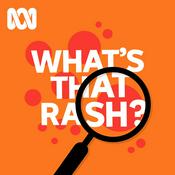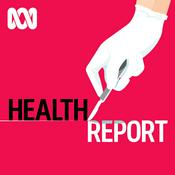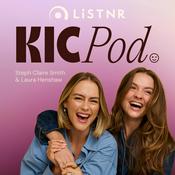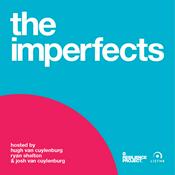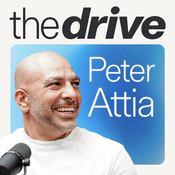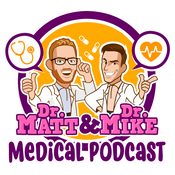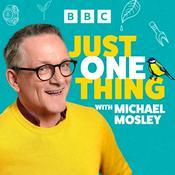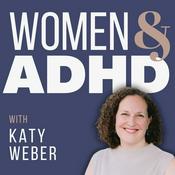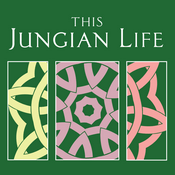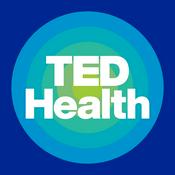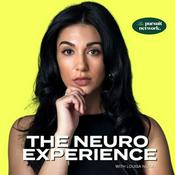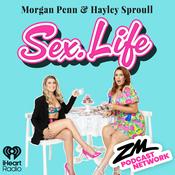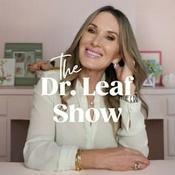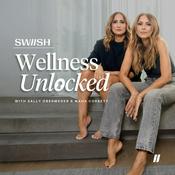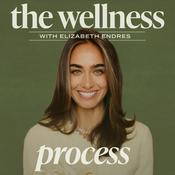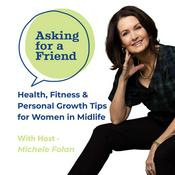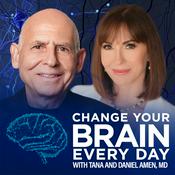205 episodes

Ep 208. Breastfeeding Myths Busted: Feeding to Sleep, Milk Supply, and Returning to Work
05/01/2026 | 1h 4 mins.
Have you ever googled something at 2am and walked away feeling more confused than before?Feeding and sleep advice can be loud, conflicting, and often loaded with unnecessary pressure, especially in the early weeks when you’re already tired and trying to figure everything out as you go.This episode is part of The Science of Motherhood Summer Series, where Dr Renee White revisits some of your favourite conversations, the ones that made you feel calmer, more informed, and less alone.In this replay, Renee chats with Melissa Hays, international board certified lactation consultant (IBCLC), holistic sleep coach, and former paediatric nurse and midwife, about the myths that cause the most stress for new mums. They talk about feeding to sleep, milk supply, breast size, contact sleep, and the belief that going back to work means breastfeeding has to end.If you’ve ever felt like you’re doing it wrong because your baby feeds often, settles best close to you, or doesn’t fit the “should” advice you’ve heard, this episode brings things back to what’s normal and what’s actually supported by evidence.You’ll hear about:Why feeding to sleep is normal, and why guilt around it is so commonWhy breast size has nothing to do with supply, and what affects feeding patterns insteadWhat’s happening in the early weeks when milk supply regulatesWhy newborns are wired for closeness, and why “only sleeps on me” is so commonWhy you don’t have to wean to return to work, and what continuing can look likeIf feeding or sleep has felt heavier than you expected, this one will help you breathe out. Share it with a mum who needs a steady voice, and hit subscribe so you don’t miss the next replay.Resources & Links📲 Connect with Renee on Instagram: @fillyourcup_🌐 Learn more about Dr Renee White and explore Fill Your Cup Doula services🍪 Treat yourself with our Chocolate + Goji lactation cookies📲 Connect with Melissa Hays on Instagram: @cocoonandcradle🌐 Learn more about Melissa’s breastfeeding & sleep support servicesThis episode is proudly supported by Fill Your Cup, Australia’s first doula village.DisclaimerThe information on this podcast presented by Fill Your Cup is not a substitute for independent professional advice. Nothing contained in this episode is intended to be used as medical advice and it is not intended to be used to diagnose, treat, cure or prevent any disease, nor should it be used for therapeutic purposes or as a substitute for your own health professional's advice.

Ep 207. Why You Feel Different After Having a Baby (Matrescence, Explained)
29/12/2025 | 57 mins.
Have you ever felt like becoming a mum changed more than your daily routine? Like it changed you?If you’ve felt a shift in your identity, confidence, or sense of self since having a baby, this episode will put words to it.This episode opens The Science of Motherhood Summer Series, where Dr Renee White revisits some of your favourite episodes, the ones that made you feel seen, understood, and less alone in your motherhood journey.In this replay, Renee sits down with Lucy Jones, science writer and author of Matrescence: On the Metamorphosis of Pregnancy, Childbirth, and Motherhood, to unpack the real transformation that happens in pregnancy, birth, and postpartum. Not just emotionally, but biologically and socially too.You’ll hear about:What matrescence is, and why motherhood can feel like a full-body identity shiftHow your brain and body change through pregnancy and postpartumWhy the “this should be natural” narrative can fuel shame and silenceWhat helps mums feel steadier, supported, and more like themselves againIf you’ve been thinking, “Why didn’t anyone tell me it could feel like this?”, you’re not alone. This episode gives you language, validation, and a way to make sense of what you’re experiencing.If it helped, share it with a mum who needs it, and hit subscribe so you don’t miss the next replay.Resources & Links📲 Connect with Renee on Instagram: @fillyourcup_🌐 Learn more about Dr Renee White and explore Fill Your Cup Doula services🍪 Treat yourself with our Chocolate + Goji lactation cookies📚 Lucy Jones’ book: Matrescence: On the Metamorphosis of Pregnancy, Childbirth, and Motherhood🌐 Lucy’s website: https://lucyfjones.com/📲 Lucy on Instagram: @lucyfjonesThis episode is proudly supported by Fill Your Cup, Australia’s first doula village.DisclaimerThe information on this podcast presented by Fill Your Cup is not a substitute for independent professional advice. Nothing contained in this episode is intended to be used as medical advice and it is not intended to be used to diagnose, treat, cure or prevent any disease, nor should it be used for therapeutic purposes or as a substitute for your own health professional's advice.

Ep206. Staycation Tips for Mums: Hotel Hacks, Packing Lists, and Nap-Friendly Plans
22/12/2025 | 18 mins.
Have you been scrolling past everyone’s overseas holiday photos and feeling that quiet pang of “we can’t afford that right now”?And even if a local getaway sounds doable, you might be thinking about the packing, the nap timing, the feeding stuff, the toddler meltdowns, and wondering if it’s even worth the effort.In this episode, Dr Renee White shares practical, mum-tested tips for planning a staycation that actually feels like a break. Not perfect. Not Instagrammable. Just genuinely restorative.Renee walks you through what to pack, what to skip, simple hotel hacks that make life easier, and one money-saving tip that could save your family hundreds on accommodation. Because sometimes the reset you need isn’t a week overseas. It’s a couple of nights close to home where someone else makes the bed and you don’t have to do the dishes.You’ll hear about:A simple membership tip that can save hundreds of dollars on accommodationRenee’s essential packing list for travelling with babies and toddlers (and what you can leave behind)Easy hotel hacks to make sleep, feeding, and settling smootherHow to plan your days around naps without feeling stuck in the roomThe mindset shift that helps staycations feel enjoyable in this season of motherhoodIf you’ve been craving a break but feeling like holidays are off the table, this episode will meet you right where you are. You don’t need to go far to feel the benefit. You just need a change of scenery, fewer jobs on your plate, and permission to keep it simple.Resources & Links📲 Connect with Renee on Instagram: @fillyourcup_🌐 Learn more about Dr Renee White and explore Fill Your Cup Doula services🍪 Treat yourself with our Chocolate + Goji lactation cookies✨ This episode is proudly supported by Fill Your Cup, Australia’s first doula village.If this episode helped, share it with a mum who needs a break but doesn’t want the chaos. And don’t forget to hit subscribe so you never miss an episode of The Science of Motherhood. 💛DisclaimerThe information on this podcast presented by Fill Your Cup is not a substitute for independent professional advice. Nothing contained in this episode is intended to be used as medical advice and it is not intended to be used to diagnose, treat, cure or prevent any disease, nor should it be used for therapeutic purposes or as a substitute for your own health professional's advice.

Ep 205. The Invisible Link Between Mum and Baby Brains
15/12/2025 | 21 mins.
Have you ever felt like your baby knows what you’re feeling before you even say a word?Maybe you’ve noticed them light up when you’re feeling calm and happy — or pull away a little when you’re flat or overwhelmed. These little moments often feel invisible, but they’re doing more than we think.In this episode, Dr Renee White explores new research on how a mother’s brain and her baby’s brain can literally sync up during moments of connection. Using a tool called dual EEG, researchers were able to capture real-time brain activity between mums and babies, showing that our emotional tone can directly influence how our brains work together.This isn’t about being “on” all the time. It’s about understanding why the moments where you feel most present with your baby matter so much.You’ll hear about:What brain-to-brain connection looks like between mum and babyWhy emotional tone plays a big role in learning and developmentThe science behind eye contact, cooing and everyday connectionHow maternal wellbeing supports brain synchronyWhy it's not about perfection, but presenceWhat matters most is remembering that even on the tough days, your presence is powerful. You don’t have to perform. You don’t need to do more. You’re doing enough, and it’s making a difference.Resources & Links📲 Connect with Renee on Instagram: @fillyourcup_🌐 Learn more about Dr Renee White and explore Fill Your Cup Doula services🍪 Treat yourself with our Chocolate + Goji lactation cookiesIf you found this episode helpful, share it with a friend or tag @fillyourcup_ on Instagram. And don’t forget to follow The Science of Motherhood so you never miss an episode.Disclaimer:The information on this podcast presented by Fill Your Cup is not a substitute for independent professional advice. Nothing contained in this episode is intended to be used as medical advice and it is not intended to be used to diagnose, treat, cure or prevent any disease, nor should it be used for therapeutic purposes or as a substitute for your own health professional's advice.

Ep 204. Why Women Feel Different About Their Career After Becoming a Mum
08/12/2025 | 1h 3 mins.
Motherhood changes the way you see yourself, your work and what you’re capable of. And when everything feels unfamiliar, it can be hard to recognise the opportunities that come with those changes.In this week’s episode of The Science of Motherhood, Dr Renee White chats with Renee Barnes, People and Culture professional and Director of The People Paradox. After navigating her own identity shift in motherhood, Renee created The FOUND Program, supporting parents to feel more confident, capable and empowered in both work and home life.Together, they explore what happens to your identity, your strengths and your leadership when you become a parent, and how these shifts can open new possibilities you may not have noticed yet.You’ll hear about:Why identity shifts feel so strong in early motherhoodHow sensitivity and hypervigilance can become leadership strengthsWhat parents really need when returning to workHow the emotional load builds and why it often goes unseenSimple ways to feel more grounded and confident in this new seasonMotherhood doesn’t come with a map. If you’re feeling stretched, unsure or in transition, you’re not alone. This episode will help you understand what’s changing and how to move through it with more clarity and confidence.Resources and Links📲 Connect with Renee on Instagram: @fillyourcup_🌐 Learn more about Dr Renee White and explore Fill Your Cup Doula services🍪 Treat yourself with our Chocolate + Goji lactation cookies🌐 Explore Renee Barnes’ work and The FOUND Program📲 Connect with Renee Barnes on Instagram: @found_learningmotherhood📲 The first 10 listeners to DM Renee Barnes will receive a 15% discount on stage 1 of the FOUND program. (Expires in 10 days 19 Dec 2025)If this episode helped you feel supported, share it with another parent who might need it. And make sure you’re subscribed so you don’t miss the next episode of The Science of Motherhood.This episode is proudly supported by Fill Your Cup, Australia’s first doula village.Disclaimer:The information on this podcast presented by Fill Your Cup is not a substitute for independent professional advice. Nothing contained in this episode is intended to be used as medical advice and it is not intended to be used to diagnose, treat, cure or prevent any disease, nor should it be used for therapeutic purposes or as a substitute for your own health professional's advice.
More Health & Wellness podcasts
Trending Health & Wellness podcasts
About The Science of Motherhood
Listen to The Science of Motherhood, What's That Rash? and many other podcasts from around the world with the radio.net app

Get the free radio.net app
- Stations and podcasts to bookmark
- Stream via Wi-Fi or Bluetooth
- Supports Carplay & Android Auto
- Many other app features
Get the free radio.net app
- Stations and podcasts to bookmark
- Stream via Wi-Fi or Bluetooth
- Supports Carplay & Android Auto
- Many other app features


The Science of Motherhood
download the app,
start listening.
